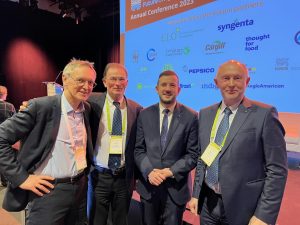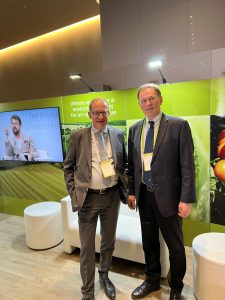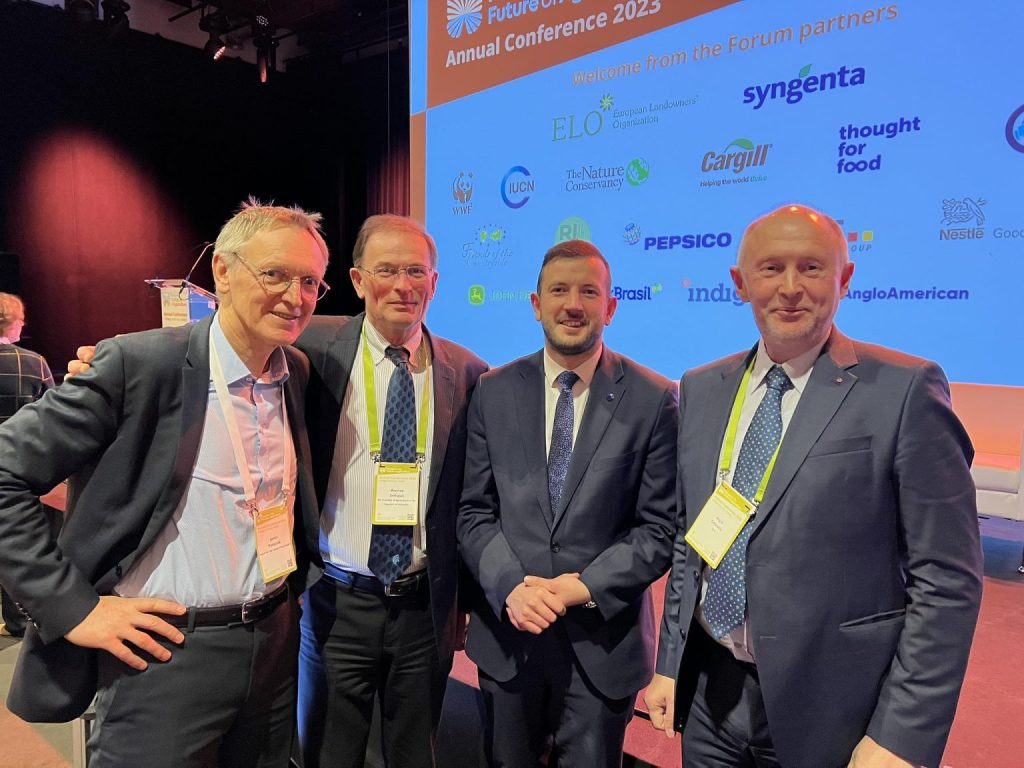Climate change and a growing population present agriculture with more challenges every day. Challenges and solutions were discussed at the annual conference of the Future of Agriculture Forum in Brussels on 28 March, 2023.
Dr. Arūnas Svitojus, President of the Chamber of Agriculture of the Republic of Lithuania (LAC), and dr. Algis Gaižutis, a member of the Board of the LAC and the Board chairman of the Lithuanian Forest and Land Owners Association (LFOA), shared their insights of the forum.

The 15th edition an annual agricultural forum for the Future of Agriculture 2023 brought together around 1,000 representatives of various organizations from all over the world.
After presentations of the speakers, dr. A. Svitojus, President of the LAC, acknowledged that agriculture is facing more and more complex challenges every year. Today, we need to find a formula how to feed our population in the context of climate change and geopolitical crises, while at the same time working with the least possible negative impact on the environment.
“Agriculture appeared 12,000 years ago. In the last century we have made a huge progress, we have launched a lot of technology and now we are growing more food than we can consume. Today, the World’s population has hit 8 billion people. Some of them starve and others waste food. Today, we grow enough food to feed 10 billion people. The problem is not in agriculture, but in consumption. We are perfectly able to get our food locally and thus contribute to reducing pollution. We don’t need to transport beef from Brazil, we have excellent farmers in Lithuania and Europe”, emphasized the importance of local farms and farmers A. Svitojus.
The consequences of intensive agriculture were also discussed at the conference. Even 70 percent arable land areas in the EU are depleted. There are also thousands of different plant and animal species on the verge of extinction. This forces us to look for solutions here and now in order to preserve biodiversity and stop soil degradation processes. One of the measures discussed is 50 percent to reduce the use of plant protection products classified as dangerous in agriculture. “When we see such problems, we need to propose long-term and short-term solutions. The earth is the property of all of us, we must take care of it. A danger to nature is a danger to humanity” warns dr. A. Svitojus.

Dr. A. Gaižutis, who took part in the discussion, was in no doubt that the ideas expressed will have an impact on the Common Agricultural Policy in the coming period. According to him, by using fewer resources, we will have to meet the growing needs of humanity and invest in a new advanced technologies.
However, he also drew attention to the fact that the European Commission, having set a very high bar for the Green Deal, is backing away from some of its proposals. Dr. A. Gaižutis noted that for some time there has been tension in the EU over the difficulty of achieving environmental targets for agriculture.
“The EC had the ambition to restore nature in the EU to the way it looked 70 years ago. However, no one wants to return to the years of Soviet occupation. We didn’t have as many forests then as we do now. Should we deforest? Every decision must be logical and measured. It’s good that the suggestions of experts were listened to and ambiguous ideas are withdrawn”, – says dr. A. Gaižutis.
The conference also discussed important geopolitical challenges, discussed how to create a more resilient and sustainable food and agricultural system, what we learned from the energy crisis, and presented other issues relevant to the agro-sector.
More information can be found at the following link: https://forumforag.com/video/?y=2023

